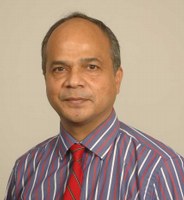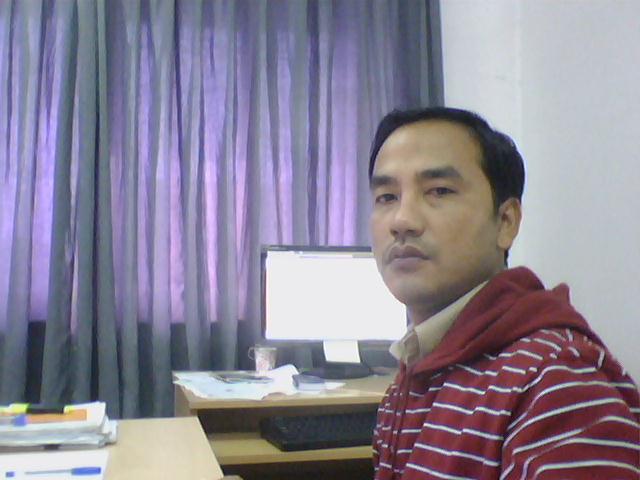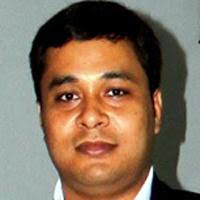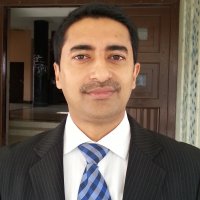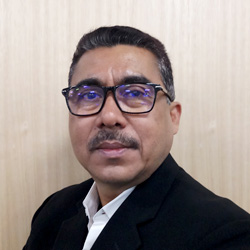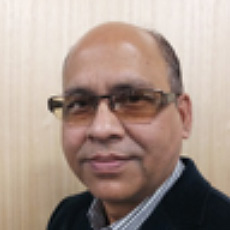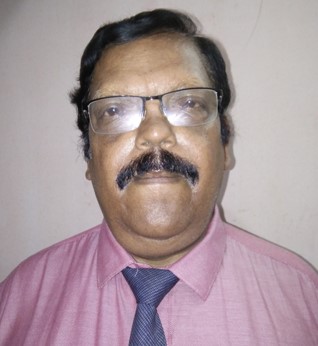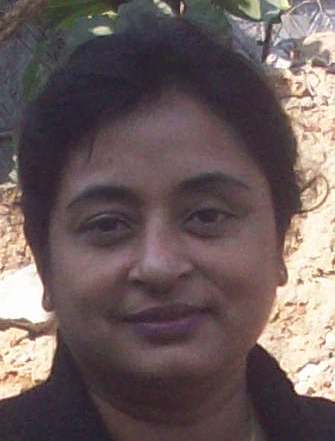Smart Villages Lab
The Smart Villages Research Program: Growing capacity in value-based rural construction and development (A Sustainable Planet Initiative - SPI, targeting "THE 40 PERCENT" rural community globally, promoting the healthy "Urban-Rural-Share" and contrasting the race against "Urban-Rural-Divide")
COSVARD 2024 (Hybrid Mode)
The 6th International Conference on Smart Villages and Rural Development
09-10 December 2024
~ Conference Schedule COSVARD 2024 (TBA) ~
Providing a global platform for researchers, policymakers and industry professionals to share relevant knowledge and examples from practice associated with new forms of rural development.
Global Seminar Series on Smart Villages (GSSV)
The Monthly Global Seminar Series on Smart Villages (GSSV) is for
harnessing strengths, expertise and practices in creation of Smart Villages and making a difference to "THE 40 PERCENT" rural community globally
~ A Sustainable Planet Initiative (SPI) ~
-
Education
Access workshops, Continuing Professional Education and the Master of Construction Management Course.
Read more -
Smart Villages
Learn more about Smart Villages Lab research activities such as affordable housing, road maintenance and power solutions.
Read more -
Governance Support
Mobilising current information and communication technologies to identify and provide better rural development governance of public, private and community sector investments.
Read more -
Latest News
Please read the latest news here.
Read more
Vision
With a massive trend toward urbanisation, there is a cultural shift being realised in Assam. More and more people from village communities are dreaming of embracing modern life with a city centric approach. As a result, the lives of villagers are transforming rapidly. While rapid transformation takes place in any society, some of the grassroots level considerations essential for general community wellbeing can be lost in the transition. In order to create a smart community, comprehensive understanding of the target community is crucial. This is the key for devising appropriate policies that empower a society holistically.
As evident in the current urbanisation trend in Assam, the tradition of independence through family centric cultivation is being replaced by a market-based economy. For instance, people are happy buying daily commodities from the marketplace, which could otherwise be produced locally with some effort. A growing economy usually results in a community embracing opportunities impulsively rather than objectively. While government systems and facilities attempt to spread such opportunities amongst the community, often it is not equally shared across the entire cross-section of the society. The old saying that “the rich get richer and the poor get poorer” is still true to some extent. No doubt, there will be winners and losers in any community but the principle of social equity can’t be ignored when it comes to improving the societal bottom line through policy intervention and governance.
Mission
Despite effort by the Government of Assam to support the community across all key areas and improve the societal bottom line, location specific planning focusing on a target community is not quite standard practice in devising intervention schemes. While State and National efforts are crucial for supporting the community at large, location specific planning with a target audience is highly effective and efficient. Efficiency in policymaking and implementation planning can be achieved only by ensuring realistically optimised utilisation of the scarce resources. However, planning with such a localised focus requires authentic empirical data and collecting this data can be highly tedious and cumbersome.
In the collaborative Capacity Building research project between the University of Melbourne and the Government of Assam, an attempt has been made to capture community specific data for supporting localised planning processes focusing on the housing and infrastructure sectors. Appropriate policy framework and governance models informed by the relevant scientific principles and best practice knowledge will be devised so that the best steps can be put forward and so that mistakes elsewhere are adequately reflected and rectified. The research effort is expected to support conceptualising the “Smart Villages” in Assam by empowering the rural community with localised planning and policy support.
Smart Villages Lab
-
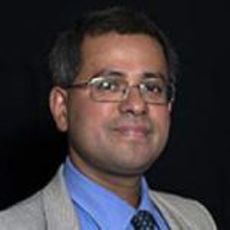 Dr. Hemanta Doloi
Dr. Hemanta Doloi
Associate Professor and Lead Investigator (Assam Project) Director and Project Leader (Smart Villages Lab) -
 Dr. Robert Crawford
Dr. Robert Crawford
Associate Professor and Chief Investigator (Assam Project, Smart Villages Lab) -
 Prof. Ray Green
Prof. Ray Green
Professor and Chief Investigator (Assam Project, Smart Villages Lab) -
 Dr. Sally Donovan
Dr. Sally Donovan
Research Fellow -
 Dr. Alessandro Liuti
Dr. Alessandro Liuti
Research Fellow -
 Dr. Masa Noguchi
Dr. Masa Noguchi
Associate Professor -
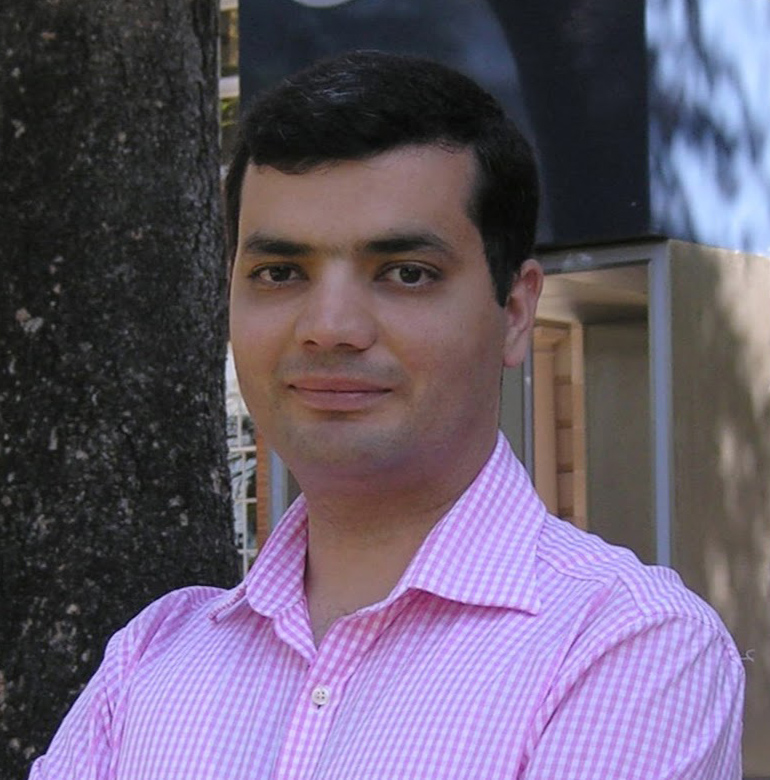 Dr. Mehdi Amirkhani
Dr. Mehdi Amirkhani
Research Fellow
Government of Assam
IIT Guwahati
PhD Candidates
Academic Scholars
Associates
-
 Prof. Mark Burry
Prof. Mark Burry
Professor and Lead Investigator (Smart Assam Project) -
 Dr. Dominique Hes
Dr. Dominique Hes
Senior Lecturer and Director of Thrive Hub -

Lorem Ipsum is simply dummy text of the printing and typesetting industry. Lorem Ipsum has been the industry's standard dummy text ever since the 1500s, when an unknown printer took a galley of type and scrambled it to make a type specimen book. It has survived not only five centuries, but also the leap into electronic typesetting, remaining essentially unchanged.
-
Publication Title
Lorem Ipsum is simply dummy text of the printing and typesetting industry. Lorem Ipsum has been the industry's standard dummy text ever since the 1500s, when an unknown printer took a galley of type and scrambled it to make a type specimen book.
-
Publication Title
Lorem Ipsum is simply dummy text of the printing and typesetting industry. Lorem Ipsum has been the industry's standard dummy text ever since the 1500s, when an unknown printer took a galley of type and scrambled it to make a type specimen book.
-
Publication Title
Lorem Ipsum is simply dummy text of the printing and typesetting industry. Lorem Ipsum has been the industry's standard dummy text ever since the 1500s, when an unknown printer took a galley of type and scrambled it to make a type specimen book.
-
Publication Title
Lorem Ipsum is simply dummy text of the printing and typesetting industry. Lorem Ipsum has been the industry's standard dummy text ever since the 1500s, when an unknown printer took a galley of type and scrambled it to make a type specimen book.
-
Publication Title
Lorem Ipsum is simply dummy text of the printing and typesetting industry. Lorem Ipsum has been the industry's standard dummy text ever since the 1500s, when an unknown printer took a galley of type and scrambled it to make a type specimen book.
-
Publication Title
Lorem Ipsum is simply dummy text of the printing and typesetting industry. Lorem Ipsum has been the industry's standard dummy text ever since the 1500s, when an unknown printer took a galley of type and scrambled it to make a type specimen book.
-
Publication Title 1
Lorem Ipsum is simply dummy text of the printing and typesetting industry. Lorem Ipsum has been the industry's standard dummy text ever since the 1500s, when an unknown printer took a galley of type and scrambled it to make a type specimen book.
-
Publication Title 2
Lorem Ipsum is simply dummy text of the printing and typesetting industry. Lorem Ipsum has been the industry's standard dummy text ever since the 1500s, when an unknown printer took a galley of type and scrambled it to make a type specimen book.
We are interested in the following forms of collaboration:
- Research: Joint research projects, especially those involving cross-disciplinary collaborations
- Prototyping: Developing prototype buildings and processes in rural communities, to test the implementation of research in practice
- Capacity Building: Assisting with training of government, professionals and villagers in new forms and techniques
- Finance: Grants either for research by the University of Melbourne, for prototyping, capacity building in local institutions and communities.
Books
| Tile | Authors | Availability |
|---|---|---|
Infrastructure for Smart Villages | H. Doloi | Published in 2024 through Routledge https://www.routledge.com/Infrastructure-for-Smart-Villages/Doloi/p/book/9781032622293 |
Affordable Housing for Smart Villages | H. Doloi & S. Donovan | Published in 2020 through Routledge https://www.routledge.com/Affordable-Housing-for-Smart-Villages/Doloi-Donovan/p/book/9780367190781 |
Housing, planning and infrastructure for Smart Villages | H. Doloi, R. Green & S. Donovan | Published in 2019 through Routledge |
Conference & Workshop Proceedings
| Title | Location | Downloads |
|---|---|---|
| COSVARD 2023 Proceedings | Webinar | COSVARD2023 |
| COSVARD 2022 Proceedings | Hybrid | COSVARD2022 |
| COSVARD 2021 Proceedings | Webinar | COSVARD2021 |
| COSVARD 2020 Proceedings | Webinar | COSVARD2020 |
| COSVARD 2019 Proceedings | Assam Administrative College, Guwahati, Assam | COSVARD2019 |
| COSVARD 2018 Proceedings | Assam Administrative College, Guwahati, Assam | COSVARD2018 |
| Town and Country Planning Short Course | Assam Engineering College, Guwahati, Assam | T&CPShortCourse |
| Construction Management Workshop | Assam Engineering College, Guwahati, Assam | CMWorkshop2018 |
| 2nd Year Workshop December 2017 | Assam Engineering College, Guwahati, Assam | Workshop2 |
Conference Papers
| Title | Authors | Conference | Downloads |
|---|---|---|---|
| Sustainable Construction in the Context of Smart Villages in Assam | S. Borah & H. Doloi | ZEMCH 2018 29 January - 1 February Melbourne School of Design, University of Melbourne | Link |
| Affordable Waste Management Sollutions for Community Housing | P. Baishya & H. Doloi | ZEMCH 2018 29 January - 1 February Melbourne School of Design, University of Melbourne | Link |
| Understanding Housing Design and Expectations of Assamese Rural communities | H. Doloi & V. Katharpi | 52nd International Conference of the Architectural Science Association (ANZAScA) 28 November - 1 December, RMIT University, Melbourne, Australia | Link |
| Role of Regulatory Framework for Supporting Construction Industry in India | H. Doloi & D. Week | AUBEA, 3-5 July 2017 RMIT University, Melbourne, Australia | Link |
| Rural Construction Management for Developing Economies: Implications for Professional Education - The Case of Assam | D. Week & H. Doloi | AUBEA, 3-5 July 2017 RMIT University, Melbourne, Australia | Link |
| Significance of Culture and Education in Developing Smart Villages in India | V. Katharpi, H. Doloi & D. Week | AUBEA, 3-5 July 2017 RMIT University, Melbourne, Australia | Link |
| Prefabrication technique for low cost housing in Assam | A. Deka, H. Doloi & R. Crawford | AUBEA, 3-5 July 2017 RMIT University, Melbourne, Australia | Link |
| Smart Cities Need Smart Villages: The Case of Assam in India | D. Week & H. Doloi | ECOCITY World Summit, 12-14 July 2017 Melbourne Convention Centre, Victoria, Australia |
Reports
| Title | Authors | Access |
|---|---|---|
| Policy Framework for Smart Villages | H. Doloi, A. Bora, S. Donovan | Link |
| Subject Design for new Professional Short Course in Construction Management | M. Hazarika & P. Patowary | Link |
| CM Course design Part 1: Building Services and Operations, Fundamentals of Project Management, Construction Methods and Equipment, Construction Waste Management, Sustainable Solutions for Buildings | P. Baishya & S. Borah | Link |
| CM Course Design Part 2: Construction Materials, Building Regulations, Building Construction, Contract Management, 3R in Construction | B. Talukdar & J. Pathak | Link |
| CM Course Design Part 3: Project Economics & Finance, Project Procurement, Project Risks & Quality Management | S. K. Deb | Link |
| CM Course Design Part 4: Social Procurement, Construction Safety | M. Hazarika & P. Patowary | Link |
Journal Papers
| Title | Details | |
|---|---|---|
Rural Road Maintenance for Assam | Coming soon | Coming soon |
Global Seminar Series on Smart Villages (GSSV) - harnessing strengths, expertise and practices in creation of Smart Villages
- A Sustainable Planet Initiative (SPI)
WHEN: FIRST MONDAY OF EACH MONTH
In an effort to converge support and cooperation in a fairly new global adventure and create a concerted voice internationally to address the needs and requirements of 40% global population, so called "THE 40 PERCENT", who are still living in rural conditions and are confined to just about a few handful countries (Indian and African sub-continents and of course in China too), this monthly "Global Seminar Series on Smart Villages" conducted at the Smart Villages Lab (SVL) will play a pivotal role. At this important juncture of making our unsustainable planet sustainable, "THE 40 PERCENT" is now clearly our choice to countering the damage our planet has sustained over time. We urgently need to conceptualise an appropriate program for developing alternative sustainable plans for developing "THE 40 PERCENT" which is long overdue and now clearly a need of the hour.
Along with some important work already done in various pockets of the globe by vary many scholars and experts, this "Global Seminar Series on Smart Villages (GSSV)" is a Trans-Disciplinary Scholarly effort for capturing knowledge, exhibiting practices and promoting debates towards creating road maps for alternative sustainable plans and models. The alternative plans and models are necessary not only to avoid the mistakes of the past unsustainable development practices but also to sensitise the values, culture, heritage of the rural communities in their new developmental experience. Currently there is no any visible effort of making the unimportant "THE 40 PERCENT" important in the global picture.
Please join in this monthly GSSV and help us growing a concerted voice in this critical area of need.
ZOOM LINK
Upcoming GSSV Seminar 10
When: Oct 09, 2023 9:00 PM Canberra, Melbourne, Sydney
5:30 PM (Indian Standard Time)
Register in advance for this meeting
https://unimelb.zoom.us/meeting/register/tZwsduiqqj8sGdxiarUFE7BrlUGM-vP3okgU
After registering, you will receive a confirmation email containing information about joining the meeting.
| Presenter | Topic | When |
Dr Samir Baruah | Inclusive Growth: an attempt in reshaping the Pyramid shaped economy of India Please see the FLYER for more details | GSSV Seminar - 10 (Upcoming) Oct 09, 2023 - 9:00 PM (Time Zone: Canberra, Melbourne, Sydney EST) 5:30 PM (Indian Standard Time) |
Dr Lutfun Nahar Lata (Lata) Lecturer in Sociology and Social Policy | Rural urban migration and livelihoods: A translocal perspective | GSSV Seminar - 9 July 03, 2023 9:00 PM (Time Zone: Canberra, Melbourne, Sydney EST) 4:30 PM (Indian Standard Time) |
Sheikh Muhammad Rezwan Department of Architecture, Daffodil International University, Bangladesh. | The village needs attention: Collaborative and participatory design studio process in teaching rural architecture | GSSV Seminar - 8 June 05, 2023 9:00 PM (Time Zone: Canberra, Melbourne, Sydney EST) 4:30 PM (Indian Standard Time) |
Dwijomala Hanjabam Department of Planning & Architecture, Mizoram University, Aizawl, Mizoram, India. | Culture, Built Environment and Sustainability: The study housing morphology of rural Manipur, Northeast India | GSSV Seminar - 7 May 01, 2023 9:00 PM (Time Zone: Canberra, Melbourne, Sydney EST) 4:30 PM (Indian Standard Time) |
Professor Md Roshidul Hasan Dept. of Computer Science and Information Technology | Smart Agricultural Initiatives: Opportunities and Obstacles in Bangladesh | GSSV Seminar - 6 Apr 3, 2023 9:00 PM (Time Zone: Canberra, Melbourne, Sydney EST) 4:30 PM (Indian Standard Time) |
| Vidhya Das Joint Director, Agragamee, Odisha, India and Prof (Dr) Kapileswar Mishra Agragamee, Odisha, India | Eco-Village Development: A Sustainable Path towards creation of Self Reliant, Economically Developed and Harmonious Villages | GSSV Seminar - 5 Mar 6, 2023 10:00 PM (Time Zone: Canberra, Melbourne, Sydney EST) 4:30 PM (Indian Standard Time) |
| Dr Shubha Dwivedi Asso. Professor and Head Dept of Biotechnology IIMT University, Meerut, India | Smart Village Model: Road to Construction of Sustainable Self-Reliant Villages and Strong Rural Infrastructure | GSSV Seminar - 4 Feb 6, 2023 10:00 PM (Time Zone: Canberra, Melbourne, Sydney EST) 4:30 PM (Indian Standard Time) |
| Mr Sanjib Sabhapandit Entrepreneur, Film Director, Actor, Educator, Technocrat, Social worker Guwahati, Assam, India | APPROPRIATE APPROACH FOR SOLUTION TO RURAL PROBLEMS THROUGH RURAL EMPOWERMENT & KNOWLEDGE INPUTS | GSSV Seminar - 3 Nov 7, 2022 10:30 PM (Time Zone: Canberra, Melbourne, Sydney EST) 5:00 PM (Indian Standard Time) |
Ms Jocelyn Dimaala School Principal Unida Christian Colleges Inc. Anabu I-F, Imus City, Cavite Philippines | Development of Smart Cities and Smart Schools Programs in the Philippines: A Sustainability Venture | GSSV Seminar - 2 Oct 3, 2022 09:00 PM (Time Zone: Canberra, Melbourne, Sydney EST) |
| Dr Pranjal Kumar Phukan D.Litt. (Hons), CEng, M.I.E, F.I.P.E, M.I.I.E, FMERC Founder - Timbre Advisors Private Limited (CosmosMinds) Author of the book - Limits to Infinity | Importance of vulnerability assessment and hazard mapping using GIS technology - reflecting the implementation of SDGs in rural settings | GSSV Seminar - 1 Sep 5, 2022 09:00 PM (Time Zone: Canberra, Melbourne, Sydney EST) |
A/Prof Hemanta Doloi Director Smart Villages Lab The University of Melbourne | Smart Villages - Concept to Reality | TBC |
| Prof Virendra Kumar Vijay IREDA Chair Professor Centre for Rural Development and Technology, National Coordinator- Unnat Bharat Abhiyan program of Ministry of Education, Government of India IIT Delhi | Unnat Bharat Abhiyan - a program of ministry of education, government of India for development of villages through higher educational institutes | TBC |
| Prof Mark Burry, AO FRAIA FTSE Director Smart Cities Research Institute Swinburne University of Technology, Australia | Artificial intelligence (AI) and the Smart Village | TBC |
Educational Activities
In an effort to rolling out the Smart Villages concept in practice, some of the key educational activities are imparted through a few partnering schools in Assam. The intent is to entice ideas among the young children, generate awareness and build capacities at the grassroots levels.
| Partnering Schools | Activities |
|---|---|
| Rangachahi High School, Rangachahi, Majuli, Assam |
|

